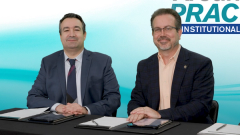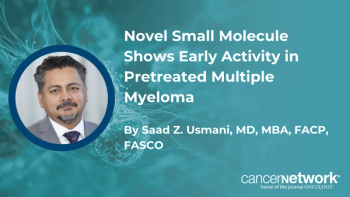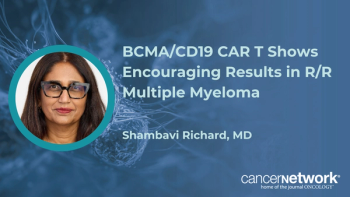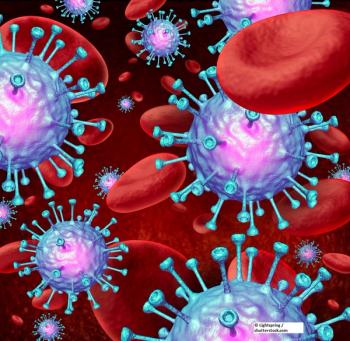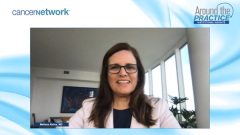
Sequencing Therapies in Relapsed/Refractory Multiple Myeloma
Shared insight on the value of using effective regimens upfront and optimal sequencing throughout several lines of therapy in multiple myeloma.
Episodes in this series

Transcript:
Melissa Alsina, MD: I want to ask a philosophical question. I want to start with you, Ken. Would you say it’s better to use daratumumab in the frontline setting, or is it better to save it for later lines?
Ken Shain, MD: I’m not that philosophical, so I’m not sure I’m the right person to ask. Let me give a brief answer.
Melissa Alsina, MD: OK, please.
Ken Shain, MD: I’m a believer that the best time to get your multiple myeloma under control is at the beginning. There are a lot of analogies we can use, but you want to make sure you get your disease under control for as long as you can and as deep as you can. When I consider daratumumab monoclonal antibodies as part of my first string, part of my induction therapy, I want to use it when I can. I’m going to use other drugs later on. In some cases, for a lot of the eligible patient population, daratumumab is…still in your armamentarium, as well as other monoclonal antibodies targeting CD38 or other targets, like elotuzumab. Those are still there.
But the physical part is that I don’t want to wait. I want to have a sequence. What am I going to do, based on X, Y, or Z? When a patient relapses on lenalidomidemaintenance, or if they’re on risk-adaptive therapies, and they’re on a PI [protease inhibitor], what are your therapies going to be? What’s that going to look like? What’s the response? What’s the relapse like? Is biochemical progression active? These are things that go into how we want to address that. But you want to have your sequence of regimens, not just drugs.
If there’s a better drug, I want to put it up front, as long as it’s safely done and has the data to tell me it’s appropriate to do. Believe it or not, your first response is going to be your longest response by a lot. We all have anecdotes where the second response is really good. Don’t get me wrong, but that’s usually because a really good drug was used. We’re moving it up front. Everybody benefits from getting your best therapies up front. That’s how I think about it.
Melissa Alsina, MD: Do you agree, Rachid?
Rachid Baz, MD: I completely agree. Daratumumab is a safe drug, and it makes a lot of sense to use a safe and effective drug early in the disease. In oncology, we don’t typically think as much about what’s coming next. [We think about] how you optimize the treatment now because we do have a number of patients who don’t make it to the next line of therapy. We want to make sure to optimize the treatment in that line of therapy so that we don’t lose patients during progression events. Going back to the transplant question, the duration of PFS [progression-free survival] is important. PFS is important, itself as an end point because if you have a longer time where the patient is progression-free, that’s going to be associated with better quality of life. That progression, if we can avoid it or delay it, that will be very beneficial for patients.
Melissa Alsina, MD: I totally agree. We definitely have impacted and changed the progression-free survival, the depth of the responses, the overall survival of patients with myeloma with all these new regimens. But we haven’t been able to change the natural history of the disease. It’s still a disease with periods of remission followed by relapses. It’s clear that once you relapse, every relapse will be worse. The duration of the response will [continue to] shorten, so the time you get with that initial therapy is the most impactful in the patient’s overall survival. Do you agree?
Brandon Blue, MD: Yes. Not only that, but because the adverse effect profile of daratumumab is typically tolerated so well, that also gives the patient a sense of confidence. [They think] “Wow, maybe I can tolerate this treatment. Maybe I can get this disease under control.” There’s something to say about the patient’s psyche and morale as they go through treatment. Sometimes, if we beat them up too early or too quickly, patients can get discouraged, and they may want to stop treatment or dose reduce. But if you give them great, well-tolerated treatment from the beginning, that can help them and see them through until they get a great response.
Transcript edited for clarity.
Newsletter
Stay up to date on recent advances in the multidisciplinary approach to cancer.





